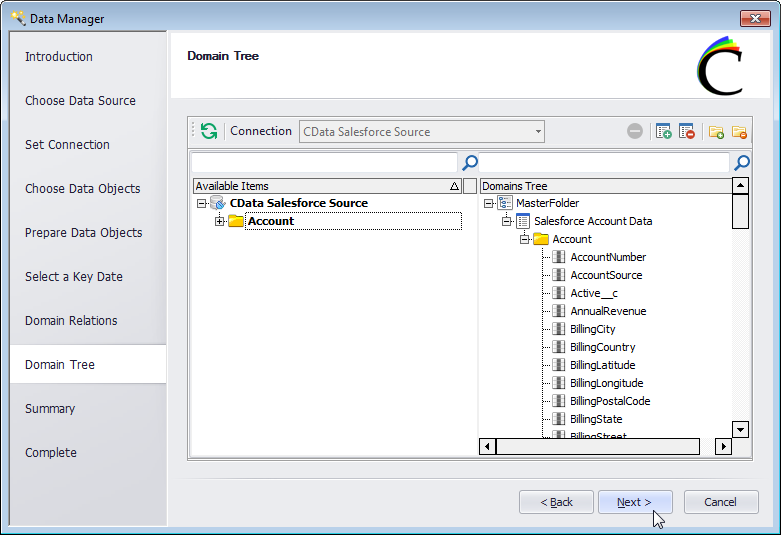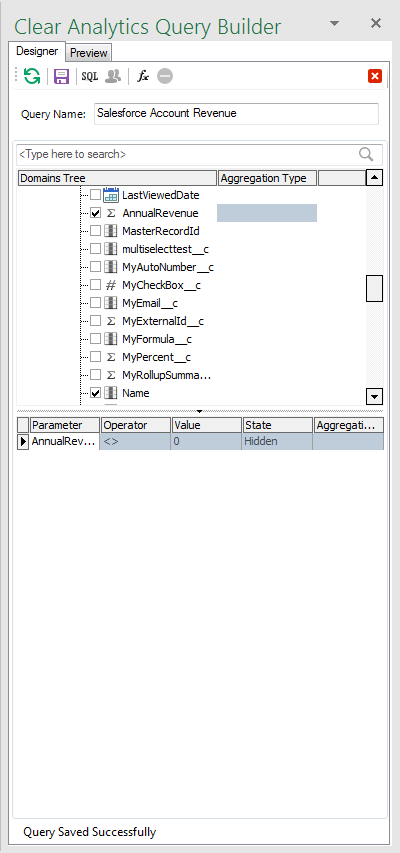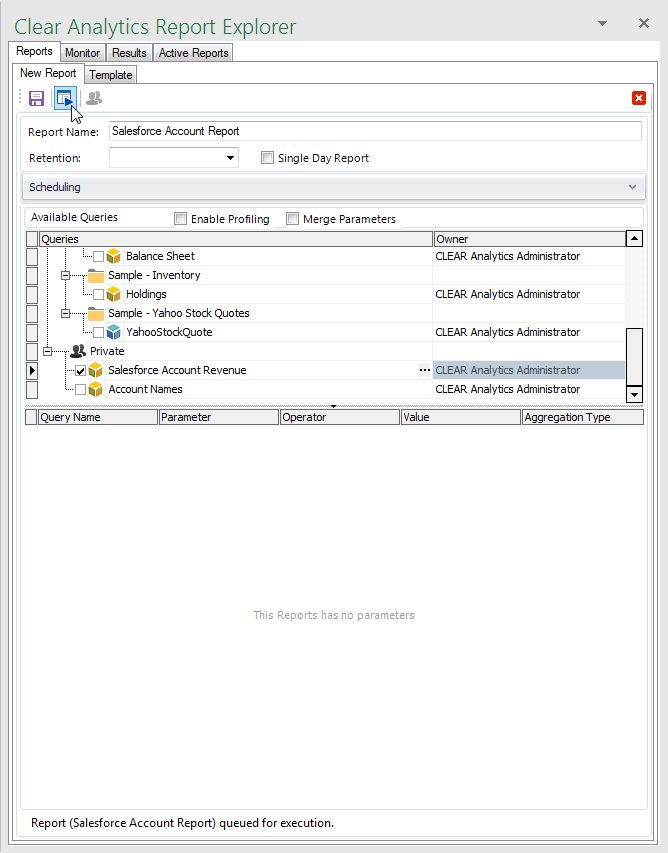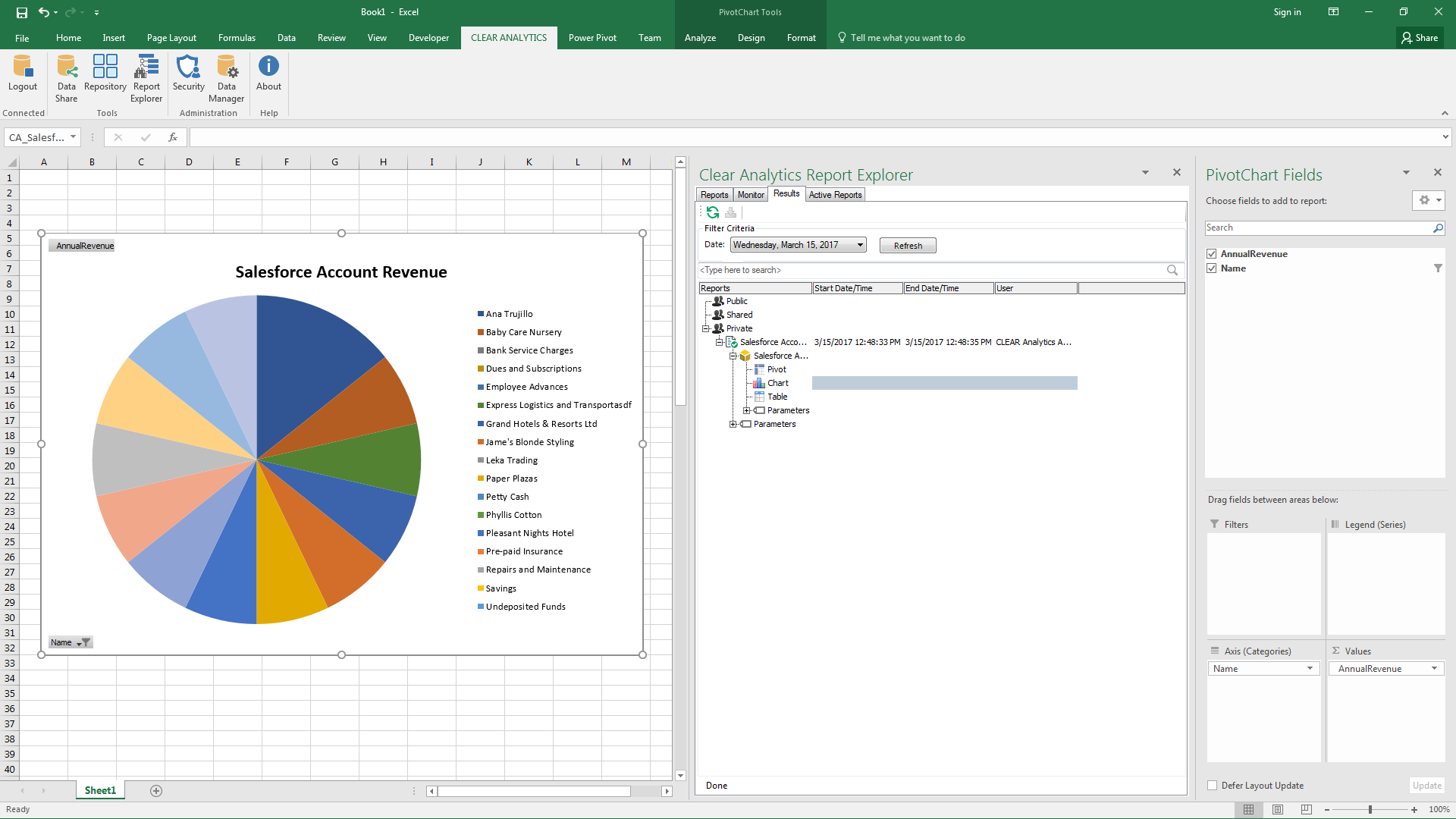Discover how a bimodal integration strategy can address the major data management challenges facing your organization today.
Get the Report →Build Charts with Clio Data in Clear Analytics
Create dynamic charts and perform analytics based on Clio data in Clear Analytics.
The CData ODBC Driver for Clio enables access to live data from Clio under the ODBC standard, allowing you work with Clio data in a wide variety of BI, reporting, and ETL tools and directly, using familiar SQL queries. This article shows how to use Clear Analytics, a Microsoft Excel Add-In, to connect to Clio as an ODBC source and create queries, tables, and charts (including PivotTables) based on Clio data.
Connect to Clio Data
Configure the ODBC Data Source Name
If you have not already done so, provide values for the required connection properties in the data source name (DSN). You can use the built-in Microsoft ODBC Data Source Administrator to configure the DSN. This is also the last step of the driver installation. See the "Getting Started" chapter in the help documentation for a guide to using the Microsoft ODBC Data Source Administrator to create and configure a DSN.
Start by setting the Profile connection property to the location of the Clio Profile on disk (e.g. C:\profiles\Clio.apip). Next, set the ProfileSettings connection property to the connection string for Clio (see below).
Clio API Profile Settings
Clio uses OAuth-based authentication.
First, register an OAuth application with Clio. You can do so by logging to your Developer Account and clicking the Add button. Enter details and select the scope of your application here - these details will be shown to Clio users when they're asked to authorize your application. Your Oauth application will be assigned a client id (key) and a client secret (secret). Additionally you will need to set the Region in ProfileSettings connection property.
After setting the following connection properties, you are ready to connect:
- AuthScheme: Set this to OAuth.
- InitiateOAuth: Set this to GETANDREFRESH. You can use InitiateOAuth to manage the process to obtain the OAuthAccessToken.
- OAuthClientId: Set this to the client_id that is specified in you app settings.
- OAuthClientSecret: Set this to the client_secret that is specified in you app settings.
- CallbackURL: Set this to the Redirect URI that is specified in your app settings.
- Region: Set this in ProfileSettings to your Clio geographic region. Defaults to app.clio.com.
When you configure the DSN, you may also want to set the Max Rows connection property. This will limit the number of rows returned, which is especially helpful for improving performance when designing reports and visualizations.
Configure the Data Source in Clear Analytics
- Open Excel and navigate to the CLEAR ANALYTICS ribbon. Once there, open the Data Manager.
- Select Database as the data source.
- In the Set Connection section, click the option to create a new database.
- Select Microsoft ODBC Data Source as the data source and click OK.
- Select the DSN you already configured from the drop-down menu.
![Selecting the DSN.]()
- Back on the Set Connection section, select Standard (ANSI ODBC) Query Builder as the SQL Builder Provider and click Next.
- Select the Schema/Owner and choose the domains (tables) that you wish to use in Clear Analytics.
![Selecting data tables (called Domains in Clear Analytics).]()
- Prepare your data objects as needed by customizing the display names and descriptions of the tables and columns.
- For the vast majority of the CData ODBC Drivers, you will not set a key date for your domains.
- In the Domain Relations section, add any relational information between tables.
- In the Domain Tree section, create groups for your data and add the available items to the groups.
![Adding Domains (tables) to Groups in the Domain Tree.]()
- Review the summary of your data and click Finish.
Create a Chart with Clio Data
You are now ready to create a chart with Clio data.
Create a New Query
- Click Repository in the CLEAR ANALYTICS ribbon.
- Create a new query.
- Select the columns you wish to retrieve.
- Set the aggregation type for your data (use the blank entry if you do not wish to aggregate the data).
- Set filters and formulas by dragging columns to the lower window.
- Name your query and click Save.
![Creating a New Query.]()
Build a Chart Based on a Query Report
With the query created, you are now ready to execute a report and display a chart.- Click Report Explorer in the CLEAR ANALYTICS ribbon.
- In the Report Explorer pane, click the 'New Report' icon in the toolbar.
- Select the query you just created.
- Name the report and click 'Save and Execute'.
![Creating and Executing a Report.]()
- Click the Results tab within the Report Explorer
- Expand your report and drag the chart to the Excel spreadsheet.
- In the resulting PivotChart window, drag the fields (columns) to the Filters, Legends, Axis (Categories), and Values windows.
![Building a PivotChart.]()
With a new data source in Clear Analytics established and a chart created, you are ready to begin analysis of Clio data. With the ODBC Driver for Clio and Clear Analytics, you can perform self-service analytics in Excel with live data, directly from Clio.












